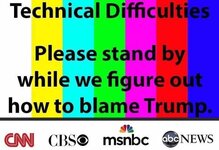- Messages
- 7,315
- Reactions
- 23,250
Markets on fire. All that newly created money from the Fed needs some place to go. When the virus hit, the government turned on the taps very quickly. Faster than "usual." So a fast response in the markets might not be such a surprise. There is fire and there is dumpster fire. A new car I looked at in 2010 was $40K for the fully equipped model. This year, the same car is $70K. There are consequences to debasing our currency.
A self perpetuating down turn may already be inevitable.
The reason there printing money is to provide liquidity.
When people and corporations save money preparing for hard time. That money is taken out of circulation.
You need money in circulation producing a decent money velocity [Spending] to heat up an economy.
So you provide lots and lots of money at really low interest rates to promote borrowing and spending.
But the reality isn't that all that money is looking for a place to go.
It's more like the Fed hopes it finds a place to go!
They want to push money. But it's like pushing on a string. Who want's it? People are fearful and saving. Or debt saturated.
Those that do want to take on the debt? They will need to qualify for this money with harder borrowing standards.
As to inflation?
Maybe after a period of deflation. When everything people own like houses, cars, and toys are sold of in a panic to get cash, and get out from under debt. This everybody selling everything will drive prices into the dirt as their things are all competing for the same few available dollars.












